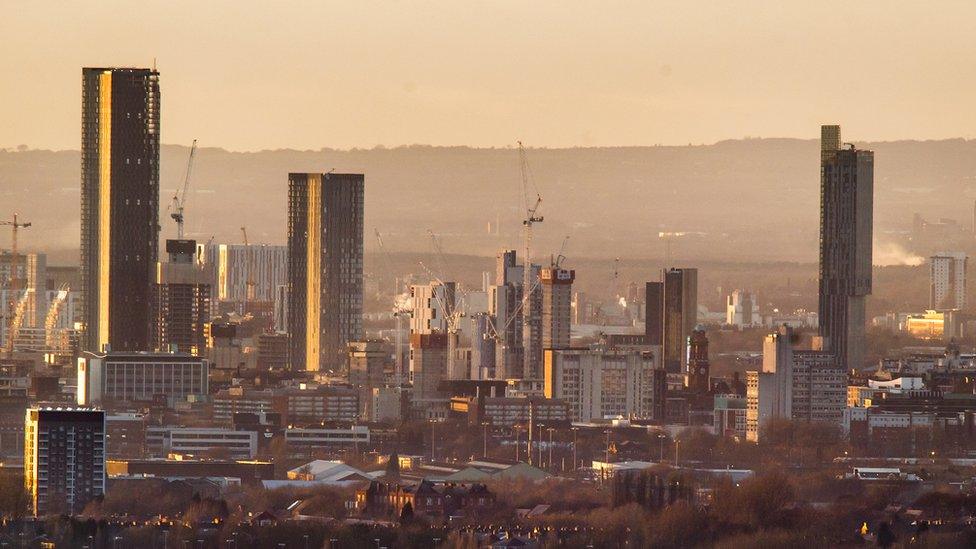Coronavirus: Mayors repeat plea to join Cobra meetings
- Published
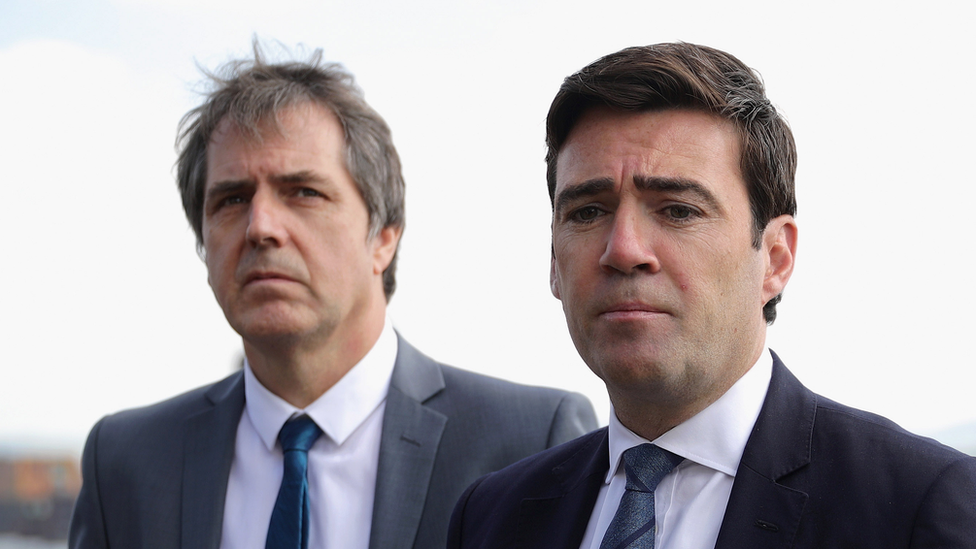
Steve Rotheram and Andy Burnham called for the government to include voices from the English regions in their decisions
Mayors in northern England say they "struggle to understand" why regions outside London have no representation on the government's Cobra forum.
In a joint statement, the mayors of Greater Manchester and Liverpool City Region asked the government to "widen the membership" of Cobra.
The call came after some scientists said coronavirus may be spreading in the North West.
The area has the highest infection rate in England, Public Health England said.
A government spokeswoman did not comment on Cobra representation, but said: "We have been working closely with our local partners, supporting them to take swift action to deal with any new local spikes in infections.
She added the government was "providing £300 million alongside comprehensive support to assist councils... and have opened the Joint Biosecurity Centre which will work closely with councils and local health structures to mitigate the risk of local outbreaks".
Andy Burnham, mayor of Greater Manchester, told BBC Breakfast: "There is no representation for any mayor outside of London on Cobra - the mayor of London is on Cobra, rightly, and Scotland, Wales and Northern Ireland, but no other English region.
"That can't carry on. If we're going to have decisions being taken that affect the regions, surely the voice of the English regions should be represented there."
On Friday, scientists said the infection rate - known as the R value - is increasing across England.

What is the R number?
The R value refers to the average number of people that will contract coronavirus from an infected person.
If it is 1 or higher, the virus will spread exponentially through the population.
A value less than 1 indicates the spread of the virus is in decline.
So if the R is 3, then 10 people would infect 30 others. But if R is 0.5, those 10 people would infect five.

The North West has an R value of 1.01, according to data released by Public Health England (PHE).
Dr Paul Birrell, from a team at PHE and the University of Cambridge, said the North West - with 4,170 infections a day - was "more worrying" compared to other regions.
The virus could be spreading "due to increasing mobility and mixing between households and in public and workplace settings", a PHE report said.
However the London School of Hygiene and Tropical Medicine said the R number for the region is 0.8.
The government spokeswoman said: "It is important to note that regional R values have wide uncertainty ranges.
"These estimates are just one of a number that inform the scientists advising government and do not represent the consensus view - Sage's current best estimate of R for the UK is 0.7-0.9, which is updated on a weekly basis."

Mr Burnham has previously said West Midlands mayor Andy Street should be on the government's Cobra committee
Mr Burnham said it was "important not to over-react", adding that the number of infections and reported deaths were "on a downward path".
Along with Steve Rotheram, the mayor of Liverpool City Region, he advised people to "err on the side of caution".
"Staying at home is the best way we can protect ourselves, and each other, and get the R number in the North West back below 1."
They added that government suggestions of "local lockdowns" were "not helpful", calling for the release of more localised data on a weekly basis to help local decision-making.
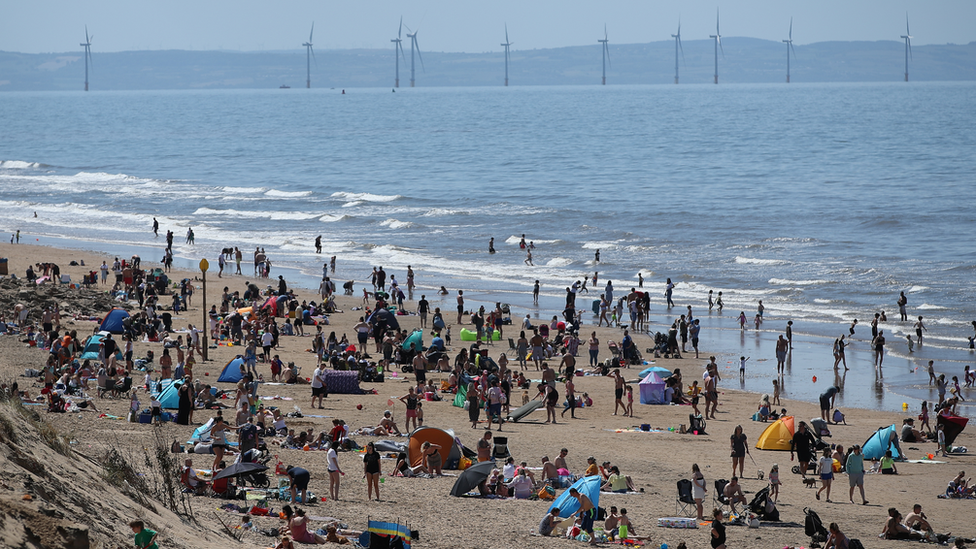
Formby Beach in Merseyside was inundated with visitors after lockdown rules were eased
Many schools in north-west England recently delayed reopening until at least 22 June following the rise in the R rate.
The mayors also urged government to "provide reassurance" about the safety of reopening more retail outlets on 15 June.
They said: "We call on the government to guarantee access to statutory sick pay to all employees irrespective of their income level or employment status and to prohibit employers from sacking anyone who is asked to self-isolate."
- Published6 June 2020
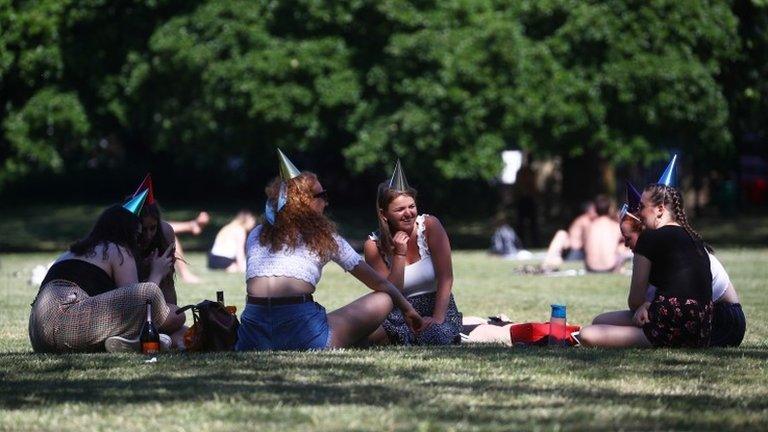
- Published6 June 2020
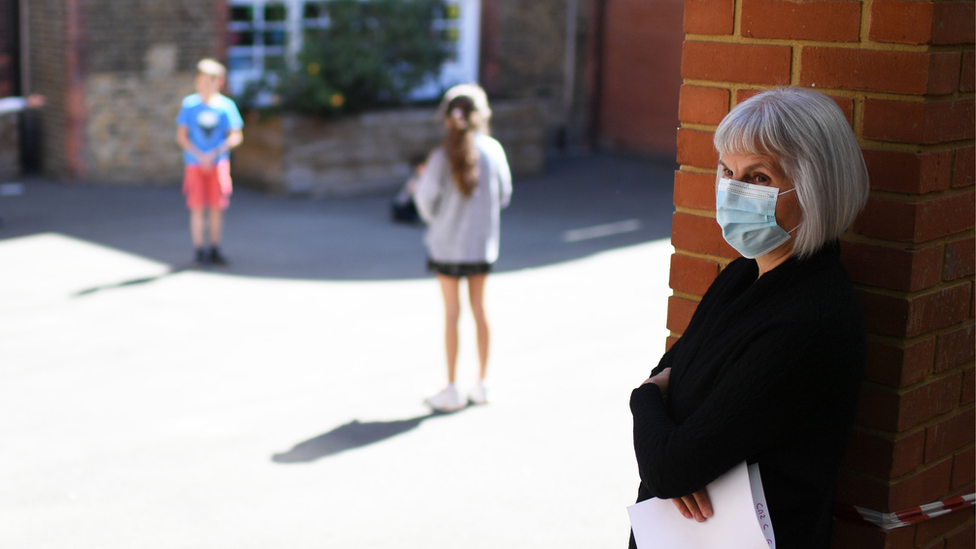
- Published17 May 2020
